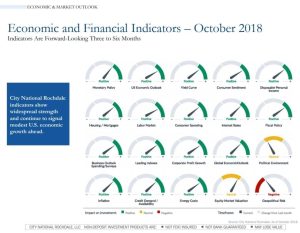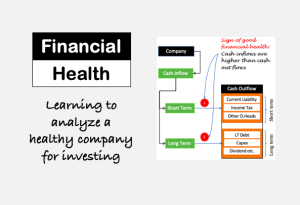
In today’s rapidly evolving technological landscape, businesses face numerous challenges and uncertainties. From cyber threats to market volatility, organizations must proactively adopt effective risk management strategies to ensure business resilience and longevity. Risk management excellence serves as a crucial pillar in safeguarding a company’s operations, reputation, and overall success.
The Importance of Risk Management
Risk management is the process of identifying, evaluating, and prioritizing potential risks and finding appropriate ways to mitigate or eliminate them. By understanding and managing risks, businesses can make informed decisions, allocate resources wisely, and protect themselves from unforeseen circumstances.
Successful risk management provides several key benefits:
Preserving business continuity: By implementing risk management practices, organizations can identify and address potential threats before they escalate into significant disruptions. This helps avoid costly downtime and enables businesses to continue their operations smoothly.
Protecting company reputation: With the proliferation of digital platforms and social media, reputation management is paramount. Effective risk management ensures that potential risks to a company’s image and brand are promptly identified and managed to minimize negative impacts.
Enhancing stakeholder confidence: Clients, investors, and partners place great importance on a business’s ability to manage risks. By demonstrating robust risk management practices, organizations inspire trust and confidence, fostering stronger relationships with stakeholders.
Driving strategic decision-making: Risk management helps businesses make strategic decisions based on accurate assessments of potential risks and their potential impact. This enables organizations to allocate resources effectively, seize opportunities, and gain a competitive advantage.
Key Components of Risk Management Excellence
For businesses to achieve risk management excellence, they need to establish a comprehensive framework that encompasses various essential components:
1. Risk Identification and Assessment
The first step in effective risk management is identifying potential risks. This involves conducting risk assessments, analyzing historical data, and evaluating external factors that may pose threats. By systematically identifying risks, businesses can proactively address them before they escalate into significant issues.
2. Risk Mitigation and Prevention
Once risks are identified, businesses must develop strategies to mitigate or prevent them. This may involve implementing security measures, establishing backup systems, training employees, or creating contingency plans. By taking proactive action, organizations can significantly minimize the probability and impact of potential risks.
3. Risk Monitoring and Control
Risk management is an ongoing process. It is essential to continuously monitor risks and regularly review risk management strategies to ensure they remain effective. Organizations should establish clear metrics and implement monitoring mechanisms to detect emerging risks early. This allows for timely interventions to prevent or mitigate potential damage.
4. Communication and Collaboration
An integral aspect of risk management excellence is effective communication and collaboration among stakeholders. Clear and transparent communication ensures that all teams and individuals are aware of potential risks and their responsibilities in managing them. Collaboration fosters a collective effort to identify and address risks, leveraging diverse perspectives and expertise.
5. Regular Training and Education
Investing in regular training and education for employees is crucial to maintain risk management excellence. By enhancing employees’ awareness and understanding of potential risks, organizations empower them to contribute to effective risk management. Training also equips employees with the necessary skills to respond promptly and effectively in case of emergencies.
The Role of Technology in Risk Management
As businesses operate in an increasingly digital world, technology plays a vital role in risk management excellence. The following are key ways in which technology can enhance risk management:
1. Data Analytics and Insights
Advanced data analytics tools enable businesses to analyze vast amounts of data to identify trends, patterns, and potential risks. By utilizing data-driven insights, organizations can make well-informed decisions, proactively address risks, and continually improve risk management strategies.
2. Cybersecurity
Cyber threats have become a significant concern for businesses in the tech niche. Robust cybersecurity measures, including firewalls, intrusion detection systems, and encryption, help protect sensitive data and mitigate the risks of data breaches, hacking, and other cyber attacks.
3. Automation and AI
Automation and artificial intelligence (AI) technologies can streamline risk management processes and improve efficiency. These tools can detect unusual patterns, predict potential risks, and automate routine risk monitoring and reporting tasks, allowing businesses to allocate resources more effectively.
4. Cloud Solutions
Cloud-based solutions offer secure data storage and backup, minimizing the risks associated with physical hardware and potential data loss. They also provide scalability and flexibility, enabling businesses to quickly adapt to changing risk landscapes.
Conclusion
Risk management excellence is a vital aspect of achieving business resilience in the dynamic tech industry. By implementing a robust risk management framework, businesses can proactively identify, mitigate, and monitor potential risks. Technology, playing a pivotal role in risk management, empowers organizations to make data-driven decisions, enhance security, streamline processes, and safeguard their operations. With risk management excellence as an organizational priority, businesses can navigate uncertainties with confidence and ensure long-term success.


